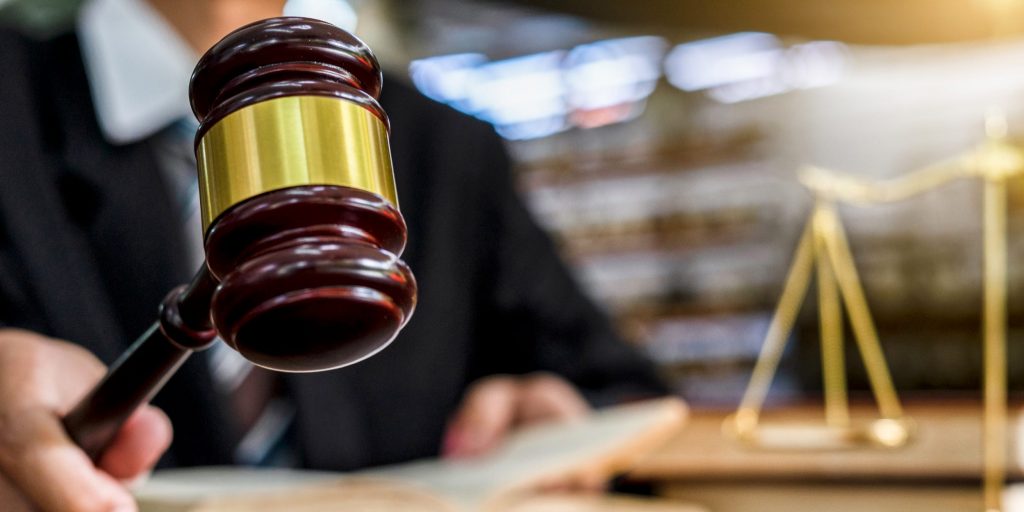
- 131 federal judges breached US law by failing to recuse themselves from lawsuits in which they held a financial interest, WSJ found.
- 61 judges or their families didn't just hold stocks in companies they were overseeing in court, they also traded them during cases.
- "I had no idea that I had an interest in any of these companies in what was a most modest retirement account," one judge said.
- Sign up here for our daily newsletter, 10 Things Before the Opening Bell.
The investing world has been rife with conflict recently. Two prominent Federal Reserve officials got embroiled in controversial stock-trading, while House Speaker Nancy Pelosi has become popular as the "Queen of Stonks", thanks to her own trades, and also those of her husband.
Pelosi made a few stock purchases that could be a conflict of interest as part of her job, while Fed presidents Eric Rosengren and Robert Kaplan recently said they would resign over controversially trading stocks while in office.
Adding to the issue, more than 130 federal judges violated US law by hearing cases that involved companies in which they, or their families, held shares, according to an investigation by the Wall Street Journal.
The Journal reviewed financial disclosures by about 700 federal judges, filed each year from 2010 through 2018, who revealed holdings in large-cap individual stocks, and compared them against tens of thousands of court cases.
Judges questioned by the WSJ said they were either unaware of their violations, or mistakenly believe they weren't required to recuse themselves from the cases.
'I am mortified'
Judge Timothy Batten, appointed by former President George Bush, heard 11 lawsuits related to JPMorgan in 2010 and 2011, even though he owned shares in the bank. Most of those lawsuits led to outcomes in the bank's favor, WSJ found.
"I am mortified," Judge Batten told WSJ by phone when he was alerted about the violations, which took place before he joined the Codes of Conduct committee in 2019. "I had no idea that I had an interest in any of these companies in what was a most modest retirement account" that was managed by a broker, he said, adding that he regretted being involved in a conflict of interest.
Batten said he stopped investing in individual stocks in 2021 and moved into mutual funds, which do not require recusal.
Judge Janis Sammartino of California, also an appointee of Bush, traded in stocks including Bank of America, Deutsche Bank, HSBC, JPMorgan, and Wells Fargo while hearing 18 lawsuits that involved one or more of those companies. Overall, she heard 54 cases that involved a conflict of interest.
Sammartino's spokesperson told WSJ that she didn't see how there could be a conflict as her stocks are held in a managed account.
What the Administrative Office of the US Court said
"The Wall Street Journal's report on instances where conflicts inadvertently were not identified before a case was resolved or transferred is troubling, and the Administrative Office is carefully reviewing the matter."
Key findings:
1. Judges appointed by almost every president from Lyndon Johnson's term to Donald Trump's failed to withdraw themselves from 685 cases across the US since 2010.
2. About 66% of federal judges revealed their holdings in individual stocks, and one in five of those heard at least one case that involved those stocks.
3. After being notified of their violations, 56 judges instructed court clerks to alert parties involved in 329 lawsuits that they should have been recused. This indicates new judges may be assigned to the lawsuits, which could affect rulings.
4. During their participation in such cases, about 66% of the rulings were made in favor of personal financial interest.
5. 129 federal district judges and two federal appellate judges had at least one case in which a stock they had vested interest was a plaintiff or a defendant.
6. 61 judges or their families didn't just hold stocks in companies that were plaintiffs or defendants in their courts, they also traded them during those cases.
7. Although stock value doesn't matter under the law, stockholdings amounted to more than $15,000 in 173 cases and $50,000 in 21 cases.
8. The violations break a core principle of US law that was first laid out by Congress in 1792: No one should be a judge on his or her own case.
